8 results in Exploration of Immunology
Latest
Sort by :
- Latest
- Most Viewed
- Most Downloaded
- Most Cited
Open Access
Review
Novel insights based on the plasticity of γδ T cells in the tumor microenvironment
Yue Wang ... Wei He
Published: February 24, 2022 Explor Immunol. 2022;2:98–132
This article belongs to the special issue Interplay of γδ T cells and Tumor Cells
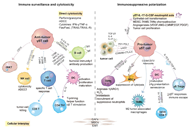
Open Access
Review
γδ T cell costimulatory ligands in antitumor immunity
Joseph M. McGraw, Deborah A. Witherden
Published: February 24, 2022 Explor Immunol. 2022;2:79–97
This article belongs to the special issue Interplay of γδ T cells and Tumor Cells
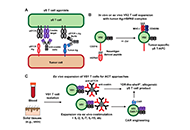
Open Access
Review
Tumor-associated protein ligands recognized by human γδ T cell receptor and their implications in cancer therapy
Chang Liu ... Wei He
Published: February 22, 2022 Explor Immunol. 2022;2:64–78
This article belongs to the special issue Interplay of γδ T cells and Tumor Cells
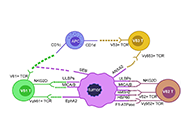
Open Access
Review
The microbiota is a potential mediator of the crosstalk between γδ T cells and tumors
Huidi Wang ... Jia Yin
Published: February 18, 2022 Explor Immunol. 2022;2:48–63
This article belongs to the special issue Interplay of γδ T cells and Tumor Cells
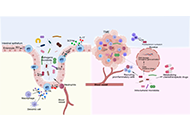
Open Access
Review
γδT cells: alternative treasure in antitumor immunity
Xiangjin Zhang ... Wei He
Published: February 17, 2022 Explor Immunol. 2022;2:32–47
This article belongs to the special issue Interplay of γδ T cells and Tumor Cells
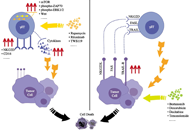
Open Access
Perspective
Endometriosis and autoimmunity
Noémie Abisror ... Arsene Mekinian
Published: February 16, 2022 Explor Immunol. 2022;2:25–31
This article belongs to the special issue Human Reproduction: Involvement of the Immune System
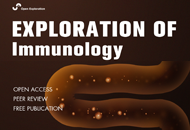
Open Access
Review
Immune titers of protection against severe acute respiratory syndrome coronavirus 2: are we there yet?
Yoanna Slabakova ... Tsvetelina Velikova
Published: February 11, 2022 Explor Immunol. 2022;2:9–24
This article belongs to the special issue Vaccine-induced Immune Responses Against SARS-CoV-2 Infections
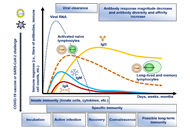
Open Access
Perspective
Fertility and COVID-19 vaccination
Iosif M. Gershteyn
Published: February 11, 2022 Explor Immunol. 2022;2:1–8
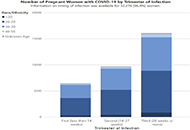
Journal Information
 Previous
Previous